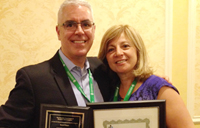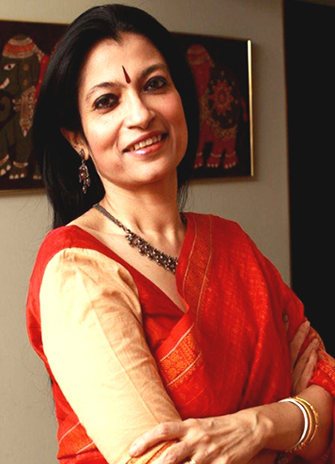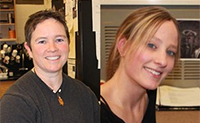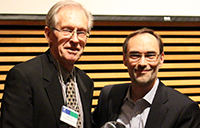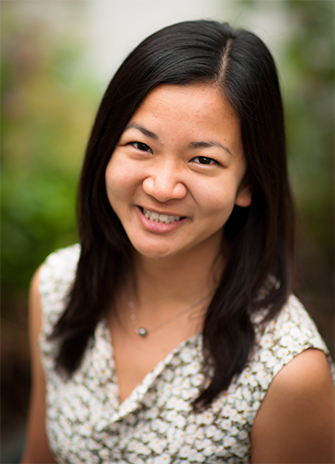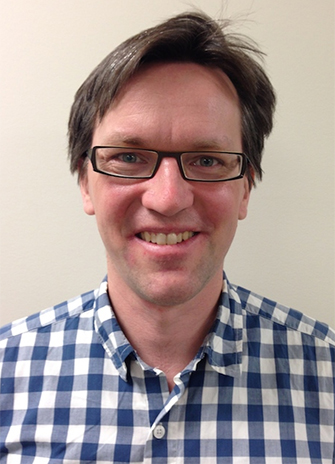
The Canadian Association of Research Administrators (CARA) has recognized the accomplishments of two of York’s senior research administrators with national awards. Angela Zeno, manager, research accounting, received the Community Builder Award. David Phipps, executive director, research & innovation services, received the Research Management Excellence Award.
The Community Builder Award is presented to a passionate leader in the CARA community whose efforts have strengthened the community through membership engagement efforts, welcoming and facilitating the integration of newcomers or other forms of leadership specifically advantageous to helping members connect to the broader CARA community. An advocate of CARA, Zeno regularly attends meetings and conferences, both regionally and nationally. She was responsible for the development and delivery of the Research Accounting workshop at CARA National for many years and is currently a key part of a team focused on revamping the finance workshops for CARA into a case-based, full-day workshop.
According to her nominators, Zeno has dedicated her efforts and those of her team to the implementation of “best practices” in post-award research administration at York University. “Within the Canadian research administration community, York is held in high esteem due to their work in this area,” says Trudy Pound-Curtis, AVP finance and CFO. “ I am very proud of Angela and her significant contribution to research grant administration in Canada.”
The Research Management Excellence Award is presented to an exceptional research manager who has made outstanding contributions to the profession, both nationally and internationally, through innovation, creativity, hard work and dedication. Phipps is being recognized for his leadership in two emerging areas of research management: knowledge mobilization that seeks to maximize impacts of research beyond the academy; and implementation of Canada’s controlled goods legislation that implements security assessments to safeguard controlled goods and/or technologies within Canada.
“David’s work across Canada in these two distinct areas has helped to increase York’s international recognition for innovation in research services,” says Robert Haché, vice-president research and innovation. “David is most deserving of this award from Canada’s research administration community.”
The awards were presented at a special celebration on May 25 at the CARA 2015 Annual Conference in Toronto. Haché was also featured on the conference’s opening panel discussing the topic “The Future of Research in Canada.” He spoke about the importance of investing in basic research that deepens our understanding of people and the world around us, as well as investing in knowledge mobilization, entrepreneurship and industry liaison to help maximize the social, economic and environmental impacts of university research.
CARA is a national voice for research administrators in Canada. With almost 1,000 members, the professional organization’s strength is in its diversity and comprehensive approach to research administration. CARA provides a critical interface between all stakeholders in the management of the research enterprise.


